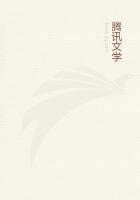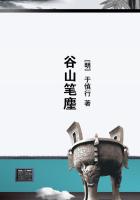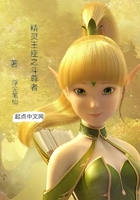[In the above letter a paper by Harvey in the "Gardeners' Chronicle", February 18, 1860, is alluded to. He describes a case of monstrosity in Begonia frigida, in which the "sport" differed so much from a normal Begonia that it might have served as the type of a distinct natural order.
Harvey goes on to argue that such a case is hostile to the theory of natural selection, according to which changes are not supposed to take place per saltum, and adds that "a few such cases would overthrow it [Mr. Darwin's hypothesis] altogether." In the following number of the "Gardeners' Chronicle" Sir J.D. Hooker showed that Dr. Harvey had misconceived the bearing of the Begonia case, which he further showed to be by no means calculated to shake the validity of the doctrine of modification by means of natural selection. My father mentions the Begonia case in a letter to Lyell (February 18, 1860):--"I send by this post an attack in the "Gardeners' Chronicle", by Harvey (a first-rate Botanist, as you probably know). It seems to me rather strange;he assumes the permanence of monsters, whereas, monsters are generally sterile, and not often inheritable. But grant his case, it comes that Ihave been too cautious in not admitting great and sudden variations. Here again comes in the mischief of my ABSTRACT. In the fuller MS. I have discussed a parallel case of a normal fish like the monstrous gold-fish."With reference to Sir J.D. Hooker's reply, my father wrote:]
Down, [February 26th, 1860].
My dear Hooker, Your answer to Harvey seems to me ADMIRABLY good. You would have made a gigantic fortune as a barrister. What an omission of Harvey's about the graduated state of the flowers! But what strikes me most is that surely Iought to know my own book best, yet, by Jove, you have brought forward ever so many arguments which I did not think of! Your reference to classification (viz. I presume to such cases as Aspicarpa) is EXCELLENT, for the monstrous Begonia no doubt in all details would be Begonia. I did not think of this, nor of the RETROGRADE step from separated ***es to an hermaphrodite state; nor of the lessened fertility of the monster. Proh pudor to me.
The world would say what a lawyer has been lost in a MERE botanist!
Farewell, my dear master in my own subject, Yours affectionately, C. DARWIN.
I am so heartily pleased to see that you approve of the chapter on Classification.
I wonder what Harvey will say. But no one hardly, I think, is able at first to see when he is beaten in an argument.
[The following letters refer to the first translation (1860) of the 'Origin of Species' into German, which was superintended by H.G. Bronn, a good zoologist and palaeontologist, who was at the time at Freiburg, but afterwards Professor at Heidelberg. I have been told that the translation was not a success, it remained an obvious translation, and was correspondingly unpleasant to read. Bronn added to the translation an appendix of the difficulties that occurred to him. For instance, how can natural selection account for differences between species, when these differences appear to be of no service to their possessors; e.g., the length of the ears and tail, or the folds in the enamel of the teeth of various species of rodents? Krause, in his book, 'Charles Darwin,' page 91, criticises Bronn's conduct in this manner, but it will be seen that my father actually suggested the addition of Bronn's remarks. A more serious charge against Bronn made by Krause (op. cit. page 87) is that he left out passages of which he did not approve, as, for instance, the passage ('Origin,' first edition, page 488) "Light will be thrown on the origin of man and his history." I have no evidence as to whether my father did or did not know of these alterations.]
CHARLES DARWIN TO H.G. BRONN.
Down, February 4 [1860].
Dear and much honoured Sir, I thank you sincerely for your most kind letter; I feared that you would much disapprove of the 'Origin,' and I sent it to you merely as a mark of my sincere respect. I shall read with much interest your work on the productions of Islands whenever I receive it. I thank you cordially for the notice in the 'Neues Jahrbuch fur Mineralogie,' and still more for speaking to Schweitzerbart about a translation; for I am most anxious that the great and intellectual German people should know something about my book.
I have told my publisher to send immediately a copy of the NEW (Second edition.) edition to Schweitzerbart, and I have written to Schweitzerbart that I gave up all right to profit for myself, so that I hope a translation will appear. I fear that the book will be difficult to translate, and if you could advise Schweitzerbart about a GOOD translator, it would be of very great service. Still more, if you would run your eye over the more difficult parts of the translation; but this is too great a favour to expect. I feel sure that it will be difficult to translate, from being so much condensed.
Again I thank you for your noble and generous sympathy, and I remain, with entire respect, Yours, truly obliged, C. DARWIN.
P.S.--The new edition has some few corrections, and I will send in MS. some additional corrections, and a short historical preface, to Schweitzerbart.
How interesting you could make the work by EDITING (I do not mean translating) the work, and appending notes of REFUTATION or confirmation.
The book has sold so very largely in England, that an editor would, Ithink, make profit by the translation.
CHARLES DARWIN TO H.G. BRONN.
Down, February 14 [1860].














